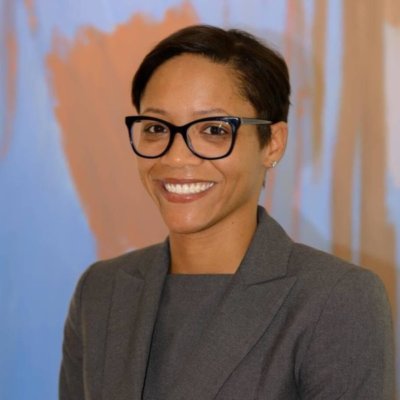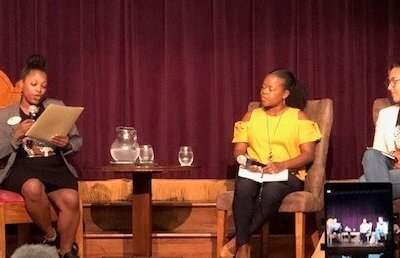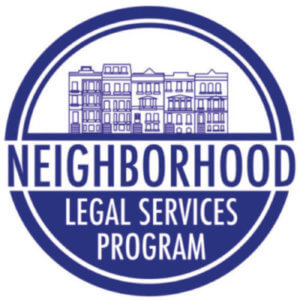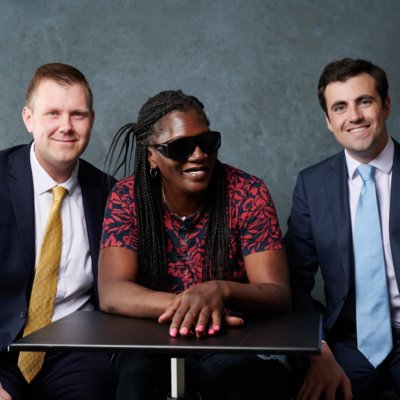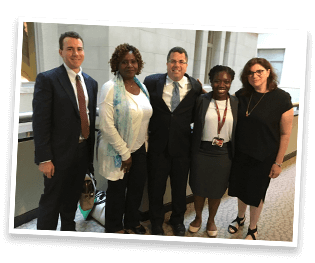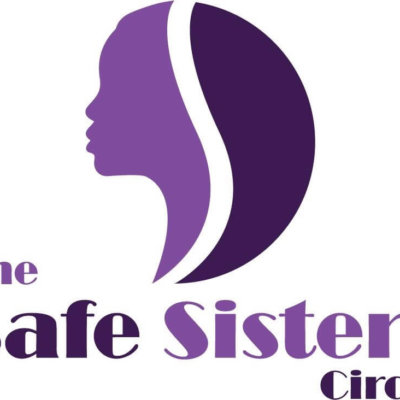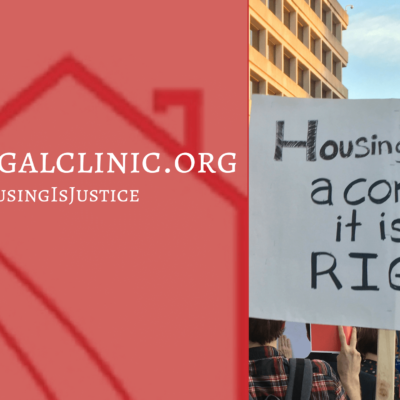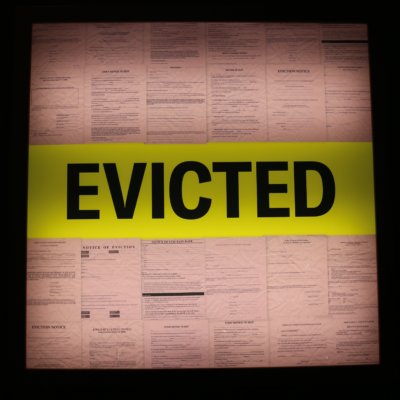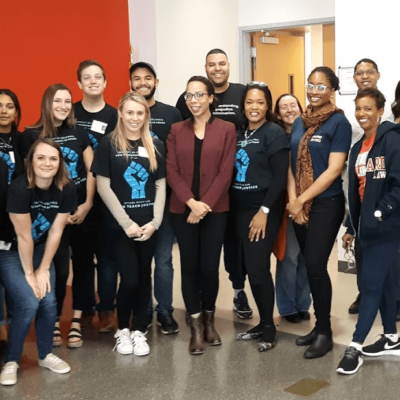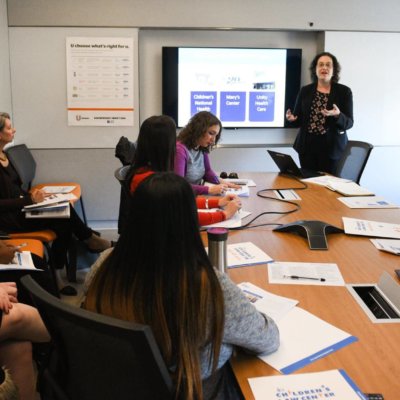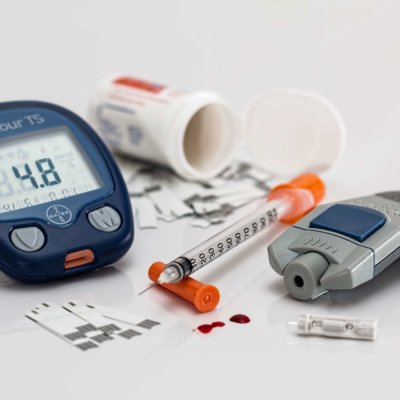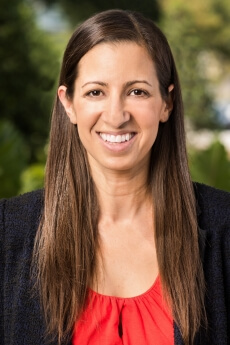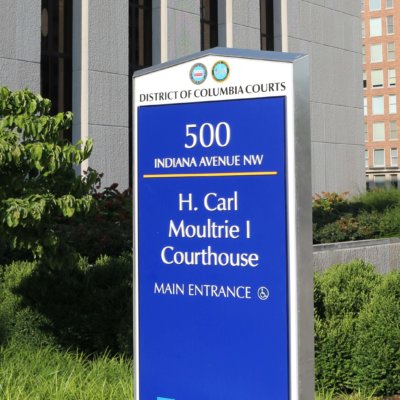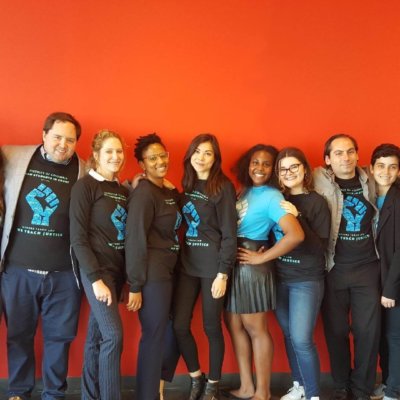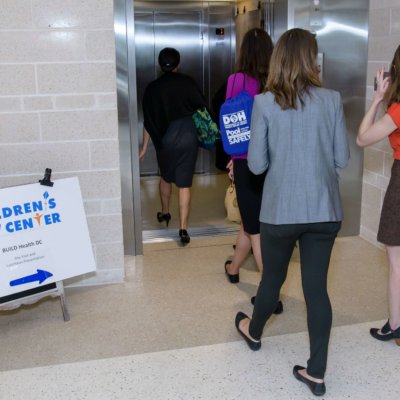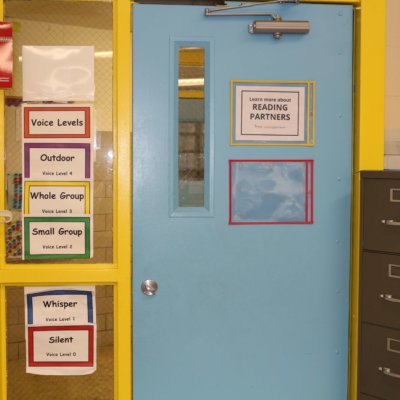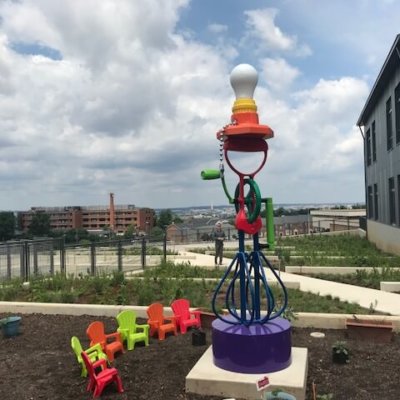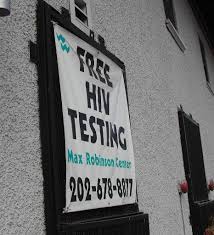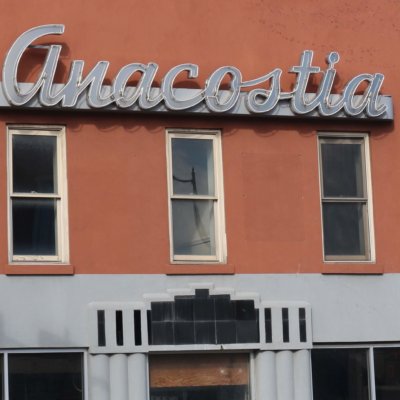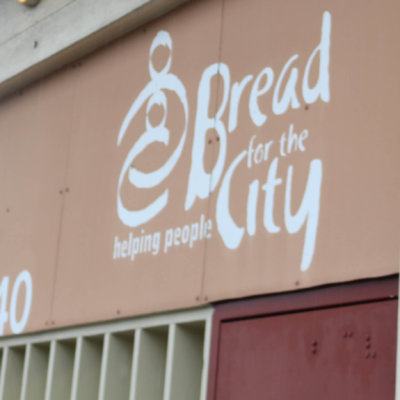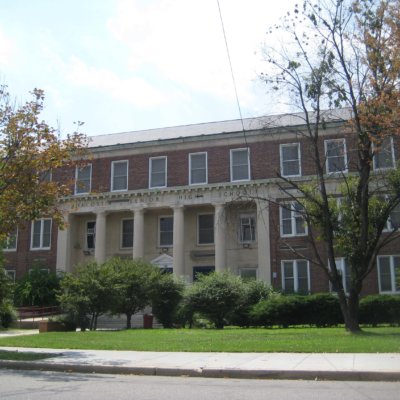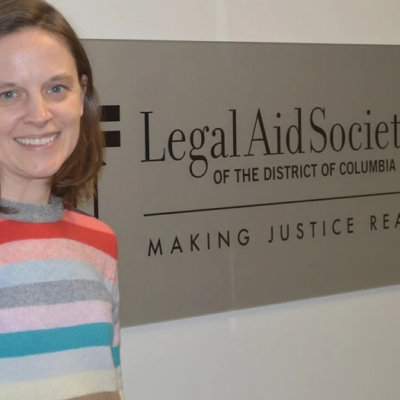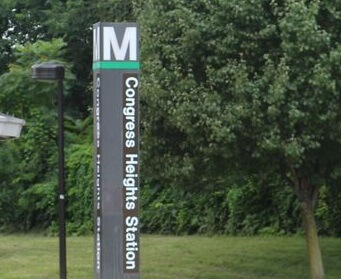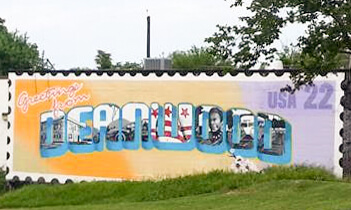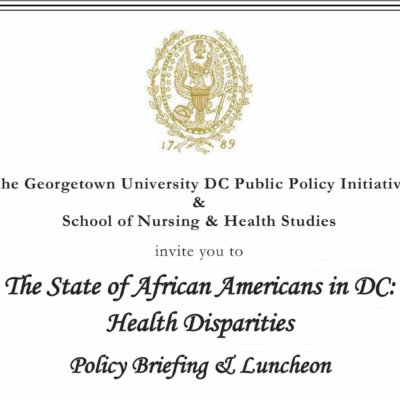Discussing Black Maternal Health and Domestic Violence
Every year, pregnancy-related complications kill about 700 women. That’s bad enough, but the racial disparity makes it even worse: Compared to white women, black women are three times more likely to die because of pregnancy. Ujima: The National Center on Violence Against Women in the Black Community wants more people to learn about this gap and, more generally, that too many black women and black babies suffer avoidable deaths. Ujima provides culturally specific services and resources about domestic, sexual, and community violence. Says its Executive Director, Gretta Gardner, "We hope to bring awareness that will spur conversations in the community about how we have to rely on each other to reduce harm and raise awareness instead of relying solely on systems and institutions." So two weeks ago (on Monday, October 14), Ujima held an event at Busboys and Poets in Anacostia to discuss black maternal health and how it relates to domestic violence. The program was one of over thirty District events held in October for Domestic Violence Awareness Month. Moderated by Ujima Senior Policy Attorney Megan Simmons, the panel featured two reproductive-rights leaders: Dr. Jamila Perritt (a local OBGYN and member of the District's Maternal Mortality Review Committee) and Jessica Pinckney (Vice President of Government Affairs at In Our Own Voice: National Black Women's Reproductive Justice Agenda). The panelists were blunt about the relationship between domestic violence and maternal health. "Many folks who will someday become pregnant or potentially become mothers or parents have often experienced some type of abuse or violence in their life," said Pinckney. And "there is no way to separate the trauma or that experience from both the experience of being pregnant and the experience of being a parent." In fighting these problems, the panelists stressed, there's no substitute for knowing about reproductive justice and its history. As Dr. Perritt explained, "If you don’t understand reproductive justice, you will continue to see inequities." And, she added, "you can’t understand the inequalities with medical care unless you understand the history." Because of this history, for instance, some African-Americans distrust medical professionals; that distrust can affect the quality of care delivered and received. As a result, doctors and other medical providers need to ask better questions to learn whether someone is a victim of violence: "You have to ask if something is going on." Unfortunately, quite a bit is going on. According to the National Network to End Domestic Violence, last year District domestic-violence organizations served an average of 589 victims—each day. Bit by bit, groups like Ujima are working to change that. Learn more about Ujima, Inc. here.
An Enduring Legacy: The Partnership between Covington & Burling LLP and the Neighborhood Legal Services Program
Joining Forces to Bring Legal Services East of the River
TZEDEK DC: Legal Help for People in Debt
Safe Sisters Circle: A Welcoming Place
A Prescription for Healthy Food in Ward 8
More Help for the Homeless in Anacostia
“Mapping Eviction”: The Eviction Lab Highlights the Eviction Epidemic with Exhibit and Discussion at the National Building Museum
Martha’s Table and Lyft Join Forces to Provide Grocery Access to Residents East of the River
By Jessalyn Schwartz Starting on January 1, 2019, the Lyft Grocery Access Program will offer affordable rides to three East of the River grocery stores for 500 eligible families in an effort to combat common barriers of transportation and access to healthy foods. Lyft has partnered with Martha’s Table, a local nonprofit, that has been working to strengthen families and communities through educational programming, healthy food projects and family support services, to implement the six-month pilot program. For $2.50 per ride, up to two members of participating families will be able to share rides to one of three local grocery stores (Giant at 1535 Alabama Avenue SE, Safeway at 322 40th Street NE, and Safeway at 2845 Alabama Avenue SE) or the Martha’s Table food markets (locations here). Eligible families must have at least one child enrolled in one of the six participating elementary schools or engaged in Martha’s Table’s educational programs and must attend an in-person orientation with Martha’s Table and Lyft prior to using their rides. Families will receive up to 50 rides through June 30, 2019. According to Lindsay Morton, Director of Healthy Markets at Martha’s Table, families have long reported that transportation is one of the top three barriers to accessing grocery stores. The program seeks to lessen the financial and logistical burdens associated with getting to grocery stores. Lyft has been a supporter of Martha’s Table for over a year and came to the nonprofit to find a way to stand with the DC community and leverage each entity’s powers to combat issues with food access and the prevalence of food deserts. Martha’s Table has been an essential player in working to resolve this problem in the city and is known to be a convener of both residents utilizing their programs and influencers who may impact the scalability of effective efforts. Collaborating through a series of meetings, Lyft and Martha’s Table were able to come up with a number of ideas, test their efficacy, and quickly bring the pilot program to fruition. Martha’s Table has reached out to local partner schools, families engaged in their programming, and community members to spread the word. If the program proves successful, they will seek to generate funding strategies to take the program to a larger scale. The goal is to first expand the program to more families in Wards 7 and 8 and then to grow the program to reach the rest of the District, and the greater DC Metro area. The program will utilize a survey model to assess its efficacy, with participants sharing information on their grocery shopping habits before, during, and at the conclusion of the pilot period. Morton shared that the enthusiasm from last week’s announcement has made the idea of implementing the program on a larger scale seem possible and that the organizations were excited to begin the new year with an innovative approach to reducing transportation and food access barriers in DC. For more information about the program, please visit the Lyft Grocery Access Program website. Families interested in joining the program can apply here. Registration is on a first come, first served basis. Registration will remain open until 500 families are enrolled. Jessalyn Schwartz is an editor of East of the River Profiles.
RECAP: 2018 DC Pro Bono Week Sealing & Expungement Summit
By Omar Delgadillo On October 26th, D.C. Law Students in Court (LSIC) hosted a Sealing & Expungement Summit at the Department of Employment Services building at their Minnesota Avenue Office in Northeast. This DC Pro Bono Week event connected members of the community with lawyers to help with the expungement and sealing of their criminal records. The Summit was an informational fair as well as a clinic, embodying LSIC's client-centered approach to representation. In this effort, LSIC's Eviction Defense Project, LSIC's Civil Protection Order Program and LSIC's Social Work Program were present at the Summit to assist attendees with other legal services. Community partners provided information to Summit attendees on how to overcome the employment and housing barriers that arrest records can present. LSIC partners at the Summit included the the D.C. Department of Employment Services, the D.C. Office on Human Rights, the Mayor's Office on Returning Citizens Affairs, the Project Empowerment Program and Howard University's Fair Housing Clinic. Each one of these partners provided information on the law surrounding housing and employment discrimination to the Summit attendees. With the coordination of Jen Tschirch, Pro Bono Coordinator at Georgetown University Law Center, several GULC law student volunteers also participated in the Summit. The D.C. Office of Human Rights provided information about actions individuals can take to protect against unlawful discrimination on the basis of their criminal record. For example, they can file a complaint against an employer or landlord whose applications contain questions about criminal records, or if there is reason to believe that their housing or employment applications were rejected before the offer stage because of their criminal record. One attendee said he has been rejected nine times in his search for housing and was told directly that one of his applications was rejected because of a prior conviction. If true, this would constitute a violation of D.C.'s Ban the Box law, which prohibits a criminal record from being considered early in the housing application process. Another attendee said he was homeless and believed he was facing trouble getting a job because of his criminal history; he had not received responses to his job applications despite having a high school diploma. The Expungement Summit involved eighteen attorneys from four major DC law firms (Arnold & Porter, Latham & Watkins, Reed Smith, Steptoe & Johnson). LSIC's clinic had a big assist from Maya Sheppard at Neighborhood Legal Services Program. Due to the Summit's success, LSIC has been able to pair more than a dozen Summit attendees with our pro bono partners for full representation in the weeks since the Summit. Washington Council of Lawyers was instrumental in helping LSIC offer this pro bono opportunity to the DC legal community. The Sealing & Expungement Summit provided dozens of individuals with much-needed information and guidance. It was a great success! Questions? Want to know more? Contact: LSIC Expungement Hotline: (202) 607-2721 or expungement@dclawstudents.org Omar Delgadillo is a member of the East of the River Profiles Committee.
Children’s Law Center’s Medical-Legal Partnership: A Holistic Approach to Child Welfare in the District
By Jessalyn Schwartz On October 24th, Children’s Law Center (CLC) invited legal professionals and advocates to visit their Medical-Legal Partnership site at the Children’s Health Center of Anacostia, providing a window into the impactful Healthy Together program. One of the first medical-legal partnerships in the country, the Healthy Together program was built on the idea that many of the health issues facing children in the District were not solely medical in nature. Many social determinants of health that children face include inadequate housing, school exclusion, or food shortages, among other problems, and medical providers were not equipped to address them with medical treatment alone. Through the Healthy Together program, CLC has now placed attorneys in seven health clinics across DC to identify legal barriers to treatment—ones like poor housing conditions that cause asthma—and help bridge the gaps that exist for youth and families. Doctors are trained to perform screenings and ask questions about issues that may lead to legal intervention. On-site attorneys may have easier access to medical records, be able to obtain letters for reasonable accommodations, and advance their clients’ interests with the assistance of medical providers. The Healthy Together program is currently made up of eleven attorneys and two investigators who work closely with CLC’s pro bono attorneys, guardians ad litem, and the advocacy of third-party caregivers and parents to serve communities in need. There is also a very active policy team in place, tackling the systemic issues that attorneys and providers are seeing on the ground. A substantial piece of CLC’s focus in this work is the BUILD Health DC initiative, a partnership between CLC, the DC Department of Health, and IMPACT DC. BUILD Health DC is concentrated on the intersection of housing conditions and pediatric asthma disparities in the city and provides data resources, direct services, and tools to assist community stakeholders in improving health and wellness for children and families. Kathy Zeisel, the Senior Supervising Attorney onsite at the Anacostia clinic, reported that the medical-legal partnership has increased client access to legal counsel and allows providers to address more health issues and have a deeper understanding of legal issues facing their patients. In 2017, CLC’s medical-legal partnership directly assisted over 3,100 children and families, 57% of whom were from Wards 7 and 8. On a systemic level, CLC has released a comprehensive city-wide mental health plan for children, generated innovative mold legislation, and engaged in advocacy related to children with disabilities, housing conditions, and agency oversight in housing and healthcare provision. Pro bono attorney involvement is essential to the success of Healthy Together and other services provided by CLC. Jen Masi, CLC’s Pro Bono Director, reported that CLC takes on approximately 200 new cases each year in the areas of child custody, caregiver representation, special education, and housing conditions. CLC provides screenings, trainings and resources, and mentoring by experienced staff to ensure that pro bono counsel are equipped to zealously advocate for their clients. To learn more about getting involved, contact Jen Masi at jmasi@childrenslawcenter.org or visit www.childrenslawcenter.org/pro-bono.
Free Medicare Part D Walk-in Clinics
Legal Aid and Whitman-Walker are hosting walk-in clinics for people who obtain regular prescription drugs and have Medicare Part D. The clinics will allow beneficiaries to meet with a lawyer and get a Medicare Part D analysis. The Open Season for Medicare Part D started on October 15. The Open Season runs through December 7 for individuals who do not also receive Medicaid or QMB, and through December 31 for low-income Medicare beneficiaries. It's always a good idea for beneficiaries to get a "Medicare Part D check up" every year to make sure that whatever Part D plan they are in will continue to cover their drugs next year. An English language flyer and a Spanish language flyer with the dates and locations of the clinics offered by Whitman-Walker Health can be viewed here. An English language flyer with the dates and locations of the clinics offered by the Legal Aid Society of DC can be found here. A Spanish language flyer with the dates and locations of the clinics offered by the Legal Aid Society of DC can be found here. Spread the word!
Jessica Steinberg: Focused on Helping Tenants
By Jackie Rogers Jessica Steinberg’s professional life has been marked by a profound commitment to helping the legally underserved. From her early days as the sole legal aid housing attorney in San Mateo County, California, this clinical professor at George Washington University Law School has worked on a range of legal issues to promote economic and social justice. Professor Steinberg’s work in California highlighted for her the many hurdles disadvantaged tenants face when they seek legal remedies from their landlords for housing code violations: fear of landlord retaliation, extended time away from work, and a lack of affordable transportation and child care options all limit opportunities to combat unsafe housing. Moreover, many poor tenants are forced to navigate a confusing and intimidating legal system on their own. Professor Steinberg’s move to D.C. and transition to academia were part of her commitment to studying and mobilizing support behind new and innovative approaches to improving the legal resources and options available to the underserved. Establishment of the D.C. Housing Conditions Court in 2010 represented just such an approach, and became the central focus of Professor Steinberg’s careful study for nearly two years. The Court was set up to address legal issues faced by tenants and to expedite cases for those living in uninhabitable conditions. The Court was born out of widespread agreement that a court with a single focus on housing code violations was needed, as existing city agencies and courts were simply overworked and overburdened. The D.C. Housing Conditions Court implemented two innovative approaches. First, the court employs field inspectors to investigate alleged violations, rather than requiring tenants to produce proof of unsafe conditions themselves. Second, judicial progress hearings are held until repairs are made, thereby holding landlords more accountable for fixing violations. Professor Steinberg’s research indicates that the Housing Conditions Court is more successful than many traditional courts in addressing habitability issues, and tenants who appear without lawyers are less prejudiced by unfair outcomes. Professor Steinberg would like to see this D.C. Housing Conditions Court approach expanded to other cities and counties. But she also wants more done to train and inspire the next generation of public interest attorneys and those willing to provide pro bono services. “The key is to train young law students and lawyers on these issues early in their careers,” she explains. “We need to provide them more direct, hands-on exposure to the many hurdles facing low-income populations.” As a professor at George Washington University, Professor Steinberg will continue conveying an inspiring message to her students. Her goal is to ensure that “all law students and attorneys understand the special privilege we’ve been afforded as members of the profession, and the obligation that comes with it to fight for justice and equality.” Jackie Rogers was an intern for Washington Council of Lawyers in 2017.
New Civil Protection Order Project at D.C. Law Students in Court
D.C. Law Students in Court has developed an exciting new resource to assist respondents in Civil Protection Order matters. The Civil Protection Order Project (CPOP) seeks to provide litigation and mediation services to respondents facing Civil Protection Order cases in DC Superior Court. At times, respondents may feel that Civil Protection Orders are overly burdensome or may perceive the legal process to be unfair. In those cases, Civil Protection Orders may be less likely to be complied with. One of the goals of CPOP is to reduce the number of respondents who may violate Civil Protection Orders. CPOP aims to ensure respondents receive fair treatment and understand court procedures, to inform respondents of the legal or collateral consequences of Civil Protection Orders, to educate respondents about the Civil Protection Order process and options available, and to facilitate peaceful negotiations and resolutions of domestic violence cases. CPOP provides a range of legal services, including providing legal information and advice, brief services, limited representation, and full representation at trial. Connecting with CPOP: CPOP has an office in the Superior Court of the District of Columbia. The office is located in Room 118A, which is a witness room right outside of Courtroom 118 (and across from the CPO Courtrooms 113 and 114). There are attorneys and volunteers in the CPOP office on Mondays, Wednesdays, and Fridays from 9:00 am - 4:45 pm. Any respondent needing assistance can stop in during that time; no appointment is necessary. A respondent may also contact CPOP by dialing: 202.638.4798 ext. 505 or emailing cpop@dclawstudents.org. Pro Bono Opportunity: CPOP welcomes the assistance of volunteers. Any attorney interested in providing pro bono assistance to respondents in Civil Protection Order cases may contact Pro Bono Director, Gwen Washington, at gwashington@dclawstudents.org.
D.C. Law Students in Court to hold a Community Record Sealing and Expungement Workshop
On October 26th, D.C. Law Students in Court (LSIC) will host a Sealing & Expungement workshop where members of the community will be able to connect with legal professionals and seal or expunge a criminal arrest, charge, or conviction, given they qualify. The workshop will be combined with a “Know Your Rights” session on how to approach the housing and job application process with a criminal record. The event will be held at the Dept. of Employment Services, located at 4058 Minnesota Ave NE (near the Minnesota Ave Metro Station) from 9:00am to 2pm. LSIC staff and their volunteer attorneys are especially seeking to aid those with arrests, charges, or convictions related to crimes that have since been decriminalized or legalized (e.g., simple possession of marijuana). For those that have arrests, charges, or convictions for misdemeanors or felonies, capacity is limited for these types of cases. However, there may be an opportunity to connect attendees with pro bono attorneys in the months that follow, and LSIC will still be providing advice on how you can proceed with the housing and job market in the meantime. LSIC will make efforts to provide smaller-scale clinics on a monthly basis. Please use this link to register and allow for LSIC to determine eligibility. Registration will close at the end of September. This event is open to the public, though pre-screening will assist in being matched with attorney services. Attorneys who would like to assist with expungement efforts, regardless of prior experience, use this link to register and for more information. Questions? Contact: LSIC Expungement Hotline: (202) 607-2721 expungement@dclawstudents.org
A Grand Opening
By Nicole Portnov Five days a week, from September to June, children all over the nation pack up Spiderman lunch bags and Five Star notebooks and head off to classrooms where parents hope they are safe, healthy, and learning. Sometimes, schools are not the safest or healthiest places for kids, especially those who already have health issues like asthma or severe allergies. As a parent, what do you do when your child’s prescription isn’t enough and just being in the school building sets off an asthma attack? As the Children’s Law Center put it, “Sometimes, the best prescription for an asthma diagnosis . . . is not medicine. It’s an attorney.” Children’s Law Center (CLC) has partnered with health clinics across Washington, D.C. to make sure that children are safe and healthy at home and at school. CLC has embedded attorneys in each partner clinic. These attorneys work with pediatricians to address the non-medical barriers to children’s health, such as poor housing conditions and building infestations that exacerbate health conditions like asthma. Recently, CLC announced the opening of their new office in Ward 8 at the THEARC (Town Hall Education Arts Recreation Campus), where they are partnering with the Children’s National Clinic. This medical-legal partnership aims to provide holistic services to families and children. Beginning this month, CLC attorney Caitlin Russi will spend two days a week at THEARC clinic, teaching families their legal rights and helping parents make sure that their children have safe and healthy environments at home and at school. Read more about the launch of this new East of the River legal resource here. Nicole Portnov is a member of Washington Council of Lawyers.
Welcome to our new editors!
Welcome to the revamped East of the River Profiles Blog. This past summer, three new editors joined our team. They have been hard at work planning fresh and exciting articles for the coming year. We thought we would introduce the new team as we kick off another year of the EOTR blog. Without further ado, please meet Jessalyn Schwartz, Elizabeth Fischer Laurie, and Nikita West. Jessalyn Schwartz, a DC-area native, joins the Washington Council of Lawyers’ East of the River Profiles Blog as a co-editor upon her return to the area after 8 years in Boston. Jessalyn is a 2013 graduate of Northeastern University School of Law, where she developed her passion for public interest law, especially in relation to child welfare, education, and civil rights. Following her graduation, Jessalyn entered a small practice and served as a court-appointed attorney for children and parents involved in child protection proceedings, students facing school offender and truancy petitions, and adults in mental health guardianship and commitment cases. Jessalyn is active in other professional organizations, writing Practice Point pieces for the American Bar Association’s Children’s Rights Litigation Committee and engaging in continuing education and networking events. She is excited to be back in Washington with the opportunity to serve her home community as she continues her legal career and to cheer on her DC sports teams (STANLEY CUP CHAMP CAPS!!!!!). Jessalyn lives in Northeast with her husband and kitties and is an avid crossword enthusiast and baker. Jessalyn is the social media arm of the editing board and looks forward to spreading the word about the incredible legal resources and advocacy efforts in place to serve Wards 7 & 8. Elizabeth Fischer Laurie serves as a Lead Attorney Advisor for the Departmental Appeals Board (DAB), Civil Remedies Division (CRD) at the Department of Health and Human Services (HHS) in Washington, D.C. CRD's jurisdiction includes Medicare provider and supplier enrollment cases, nursing home enforcement actions, and Office of the Inspector General practitioner exclusion cases. Elizabeth serves as a member of the management team, performing a variety of tasks, including processing all incoming requests for administrative law judge hearings, responding to congressional and FOIA requests, leading a team of attorneys, and providing input on strategic decisions. She also assists ALJs with case management and drafting. Prior to joining CRD, Elizabeth served as a Process Management Attorney in the Medicare Operations Division at DAB, where she handled a docket of over 29,000 cases; as a Program Analyst for the Assistant Secretary for Financial Resources at HHS, where she managed the Indian Health Services budget portfolio; and as a Realty Services Specialist for the General Services Administration. She joined the government as a Presidential Management Fellow in 2012. Because of her love for public service and volunteering, Elizabeth participates in a number of activities outside of work that provide value to the D.C. community. In addition to serving as co-editor of the EOTR blog, she has volunteered with Young Government Leaders for the past six years, where she currently serves as the Chief Financial Officer, and has served as a mentor through several formal programs. Elizabeth lives in Alexandria with her husband; loves SoulCycle, yoga, and begrudgingly attends [solidcore] once a week; attends as many live music and theater performances in the D.C. area as she can, and participates in numerous book clubs. Nikita West serves as the DC Volunteer Lawyer’s Project’s Roxana Cannon Arsht Fellow in the Child Advocacy Program and Domestic Violence Program. During law school, Ms. West clerked in the Narcotics Division in Cook County Circuit Court and for the Chief Judge in the Chancery Division. Ms. West earned her J.D. from John Marshall Law School, her B.A. from the University of Michigan – Ann Arbor, and received an LL.M in International Criminal Law. She has also done legal volunteer work and research in Namibia, Myanmar and Haiti. We want to thank our inaugural editor, Caroline Fleming, for her dedication, hard work, and expert editorial pen. We so appreciate your help launching a forum for highlighting the great work of pro bono and public-interest lawyers in the East of the River neighborhoods of DC. Onward!
Improving Children’s Literacy East of the River
By Christelle Tshibengabo Reading Partners connects students in under-resourced schools with volunteer tutors and mentors across the United States. In Washington, D.C., Reading Partners has reading centers in 19 elementary schools, 10 of which are East of the Anacostia River. A significant percentage of the volunteers and tutors in the District's Reading Partners programs are attorneys and other legal professionals. Attorneys from Hogan Lovells LLP, for example, have volunteered for Reading Partners for several years, and Hogan Lovells partner Stuart Stein is on the board of directors. Hogan Lovells has a number of programs that service communities east of the Anacostia River, including a partnership with Kimball Elementary School. Stein became involved with Reading Partners after attending a citizenship program held by Hogan Lovells at Kimball four years ago and has remained committed to volunteering since. Speaking with WCL intern, Christelle Tshibengabo, Stein explained that when he started volunteering at Kimball, he ran the corporate practice at Hogan Lovells. While his professional life kept him busy, he still made time to spend an hour every week with the students at Reading Partners. Currently, he works regularly with at least four students. When asked how volunteering with Reading Partners has impacted his life, he explained that it is an "unequal partnership" because you get more from the students than you give to them. To learn more about Reading Partners, Tshibengabo also interviewed Reading Partners Community Engagement Director, Naomi Shachter, at Maude Aiton Elementary School in Lincoln Heights. When Tshibengabo arrived, three students from kindergarten through third grade were already in the reading center starting their day. Participating students are usually pulled from classes during independent reading times based on their reading ability and needs. When they arrive at the reading center, they meet with their tutors and begin a lesson, which consists of reading a book of the student’s choice aloud, targeting difficult vowels and consonants, and assessing content comprehension. Lawyers can have an outsized impact on the students they tutor. As an example, Naomi shared the story of Ana, a DC law student and Reading Partners volunteer, and her student Israel, who worked together at Aiton’s reading center. At the beginning of their first year working together, Ana had said she wanted to become a lawyer, while Israel said he wanted to make pizza. But by the end of their second year together, both Ana and Israel wanted to become lawyers. After their time at the reading center, the students are encouraged to take books home both as homework and for recreational reading. Because books for the program are donated to Reading Partners, donors are also important to the long-term impact on the students. Reading Partners is always seeking new volunteers for its programs. To volunteer for Reading Partners, register online here. After registering online, attend an orientation, complete a background check, and then schedule a session time. The students’ lessons run for 45 minutes, so volunteering involves hour-long shifts during school hours. If finding time during the school day is a challenge, you can also donate books to Reading Partners for the students to take home. Christelle Tshibengabo interned with Washington Council of Lawyers in 2018.
DC Volunteer Lawyers Project Offers East of the River Resources for Victims of Domestic Violence
DC Volunteer Lawyers Project (DCVLP) has opened a satellite office in The Commons at Stanton Square to serve victims of domestic violence and at-risk children and their families. The new location will be a collaborative effort with Martha’s Table and Community of Hope to serve clients in Ward 8. DCVLP Co-founder and Executive Director, Karen Barker Marcou, said that she is excited the new location will provide more legal and social services to families and children in Ward 8. “At least 30 percent of our clients reside in Ward 8. We were excited about Stanton Common’s focus on families and children, because our legal practice focuses on families and children.” The new location will provide space for attorneys to meet with clients and will provide support services in areas such as housing assistance, counseling, parenting classes and emergency assistance with food and clothing needs. DCVLP recently celebrated its tenth anniversary in May. The organization was started in 2008 to provide pro bono legal services to domestic violence victims and Guardian Ad Litem services to at-risk children. DCVLP attorneys staff the Domestic Violence Intake Center at DC Superior Courthouse every Monday and provide walk-in clinic services every Wednesday at Westminster Presbyterian Church in Southwest DC. Marcou stated that the Wednesday clinic sees over 400 people annually and that she never dreamed that DCVLP would grow to be so big. “I am very excited that we have been able to engage thousands of attorneys in pro bono work to help District residents in desperate need.” If you are interested in getting involved, sign up to attend DCVLP's volunteer recruitment lunch on Thursday, September 13. Register here.
Whitman-Walker Health
By Christelle Tshibengabo Whitman-Walker Health is celebrating its 40th anniversary in the District of Columbia this year. Whitman-Walker Health is a non-profit community health organization. Whitman-Walker specializes in providing health care to the LGBT community and to those living with HIV; however, the centers are also open to those with a wide range of health concerns and needs. Whitman-Walker Health has six locations, including four in Northwest DC (Whitman-Walker at 1525, Whitman-Walker at WeWork Manhattan Laundry, and Whitman-Walker Research). Whitman-Walker Youth Services is in Eastern Market in SE and The Max Robinson Center is located East of the River in Anacostia. The Anacostia site offers medical care, behavioral health care, dental care, HIV testing, insurance navigation, and legal services. Recently, Whitman-Walker announced that it will be opening a pharmacy adjacent to its Max Robinson location. The Max Robinson Center is named after American broadcast journalist, Max Robinson, who was the first black anchor for ABC World News Tonight and one of the founders of the National Association of Black Journalists. Mr. Robinson died of complications associated with AIDS. In February, a program hosted by Whitman-Walker Health and PNC Bank at the Lincoln Theater celebrated the life of Mr. Robinson and other pioneers of black journalism. I recently spoke with Allison Dowling, a staff attorney who focuses on public benefits law including applications; advocacy; appeals for Social Security, Medicaid and Medicare; Food Stamps; and Interim Disability Assistance. Whitman-Walker Health has a legal services team that provides assistance across its sites to assist its patients with access to care and other areas related to patient's health and wellness, including healthcare planning documents, identity documents for transgender clients, discrimination, and immigration status. According to Ms. Dowling, the Max Robinson Center is important to the community because everyone deserves to be able to access care in their own community. Whitman-Walker Health has had a presence in SE DC for over thirty years. In its next decade, Whitman-Walker plans to continue to bridge the gap for access to healthcare throughout the Washington, DC metropolitan area. You can learn more about Whitman‑Walker Health here. Christelle Tshibengabo interned with Washington Council of Lawyers in 2018.
Is development in Anacostia breaking up a village?
Most Washingtonians, regardless of where they reside, know that the city landscape is changing. It is hard not to notice the construction cranes and ubiquitous “sidewalk closed” signs signaling new buildings on the horizon. But this construction has left some, including those residing in older and economically challenged neighborhoods, asking whether these changes are ultimately a step forward, especially if construction makes the cost of living in their neighborhood unaffordable. A recent New York Times article addresses this battle between gentrification and the expansion of affordable housing options. Many advocates and residents are concerned that developers are solely focused on building high-cost, market-rate housing, leaving those in low-rent apartments or in lower-cost neighborhoods in untenable positions. Specifically, the Times discusses development in Anacostia, where median home sales prices jumped 22 percent in 2017. The Times also reports on the city’s efforts and commitment to increasing affordable housing. Since 2013, the city government has adjudicated thousands of legal challenges, many filed in an attempt to slow the speed of development across the District and ensure more affordable housing is included in development plans. Mayor Muriel E. Bowser is currently seeking to revise a comprehensive city plan to decrease these court challenges and undo the logjam of construction of badly needed new housing units. Despite these efforts, the future of affordable housing – and the effects of development on well-established neighborhoods – remains in question.
Bread for the City Breaks Ground in Southeast DC
Exciting news from Bread for the City -- the organization has begun construction on a 30,000 square-foot facility on Good Hope Road, more than tripling their footprint in Southeast! The new Southeast Center will provide a variety of new and enhanced services, including primary health care, vision, and dental services; a wellness center; and even a vegetable garden on the roof. The new facility will also feature an expanded jobs center, which will provide job seekers with a new classroom, computer lab, and training space, in addition to offering counseling, mentorship, and long-term support. Bread for the City hopes to open the new and improved Southeast Center in 2020. In the meantime, they plan to continue providing Southeast residents with legal, employment, and social services. Read more about this exciting development in Anacostia here!
$10 Million for East of the River Students to Attend College
DC Bar Foundation Awards Access to Justice Grants to Legal Services Providers East of the River
The DC Bar Foundation recently announced the 2017 recipients of the Access to Justice Grants Program, which awards grants to DC-based organizations that provide free legal help to low-income DC residents. This year, over $4.5 million was awarded to more than thirty DC-based legal services providers, including more than $3 million in grant funding for providers assisting residents of underserved areas. In 2016, Access to Justice grantees served nearly 23,000 DC residents, 52 percent of whom live in Wards 7 and 8. In addition to the multiple legal services providers receiving grants to assist low-income and vulnerable citizens across DC, several grants will benefit East of the River residents directly. One new grantee for 2017, Tzedek DC, received funding to assist low-income DC residents in debt-related legal matters, including providing community outreach by partnering with the United Planning Organization in Ward 7. Bread for the City received continued funding for its community lawyering work at its offices on Good Hope Road SE. The project’s attorneys work directly with the community to help identify options to tackle issues affecting its residents and, when needed, provide substantial direct representation to the residents. The project focuses on affordable housing, housing conditions, and hiring practices. The grant awarded to Whitman-Walker Health will provide legal representation, counseling, and outreach to people living with HIV/AIDS and other low-income residents East of the River, through lawyers based at its Max Robinson Center in Southeast DC. Whitman-Walker offers free legal aid to lesbian, gay, bisexual, and transgender individuals in DC, regardless of HIV status, and to health care patients regardless of sexual orientation, HIV status, and gender identity. Children’s Law Center received continued funding for its Healthy Together Medical-Legal Partnerships with Unity Healthcare’s Minnesota Avenue clinic in Northeast DC, and with clinics in Southeast DC. In this medical-legal collaboration, the lawyers provide services through the Unity Healthcare clinic and two Southeast clinics of the Children’s National Medical Center, working with families of CNMC patients to identify and resolve non-medical solutions to children’s health issues. Neighborhood Legal Services Program received continued funding to provide neighborhood-based legal aid in the areas of housing, family law, and public benefits through NLSP’s office Ward 7 on Polk Street NE, which will provide low-income residents of this underserved community with free and accessible legal assistance. And the Legal Aid Society of the District of Columbia received continued public funding to support their Southeast Neighborhood Access Project, which provides clients with access to lawyers who work in two neighborhood offices in Wards 7 and 8.
Beth Harrison and the Future of Legal Aid
By Craig Welkener As DC's affordable housing crisis deepens, Beth Harrison and other advocates have created an innovative program for people on the brink of eviction, pushing the boundaries of what has been possible in legal aid. By identifying at-risk tenants even before their eviction notices arrive, the Housing Right to Counsel Pilot Project is making real help more available than ever before. Although housing laws in the District are complex, the vast majority of individuals facing eviction are too poor to pay for an attorney. Legal services have historically been limited to those with the time to track down a nonprofit lawyer ahead of time, or those who take advantage of last minute, on-the-spot help provided by the Landlord Tenant Court-Based Legal Services Project. That project, which provides housing attorneys on a same-day basis, was funded by the city in 2007. However, that paradigm has begun to change, with the start of the Housing Right to Counsel Pilot Project. Beth Harrison, the director of the project, has worked in the trenches from the beginning. After earning her law degree from Harvard, Harrison arrived at the Legal Aid Society of the District of Columbia in 2005 as an entry-level housing attorney. At that time, Legal Aid's housing law program consisted of only three full-time staff attorneys, one fellow, and two loaned attorneys from law firms. The work received a boost in 2007, when the DC Council appropriated funds to subsidize legal counsel for the poor. Legal Aid's housing work has grown since then to twelve permanent lawyers and three loaned associates. As Harrison explains, these changes have meant that advocates can serve more clients, and "a big piece of that has been the city's choice to appropriate that funding." But vast gaps remain. The DC Bar Pro Bono Center reports that currently 95% of tenants remain unrepresented, while 90% to 95% of landlords pay for an attorney. Systemic problems call for sustainable solutions. And the Housing Right to Counsel Pilot Project—run by Legal Aid, Bread for the City, Legal Counsel for the Elderly, and the DC Bar Pro Bono Center—is futuristic in its design. "We are reviewing all eviction cases as they are filed with the court," Harrison explains. For approximately one out of every seven cases involving subsidized housing, "we send a letter saying we want to represent you." If the tenant accepts the help, a lawyer begins working on their case pro bono—even before the tenant receives an eviction notice. The program began in 2015, and relies on a smorgasbord of local nonprofits and law firm pro bono work to accomplish the mission. By providing help exactly when people can use it the most, the Housing Right to Counsel Pilot Project has the potential to truly change the norm of the unrepresented tenant. Perhaps this is the wave of the future. Ward 5 Councilmember Kenyan McDuffie recently introduced the Expanding Access to Justice Act of 2016, which would increase funding for similar housing projects. Guaranteeing a broad “right to counsel … in civil cases involving fundamental human needs" is McDuffie’s long-term goal. Harrison is certainly inspired. "The legal work that we do here is incredibly challenging and rich. And the interaction with the clients of course is an ongoing benefit. It's an ongoing inspiration to keep doing the work." Craig Welkener is a volunteer with the Washington Council of Lawyers, a Ward 8 resident, and a Georgetown graduate clerking at the U.S. Court of Appeals for the Armed Forces.







